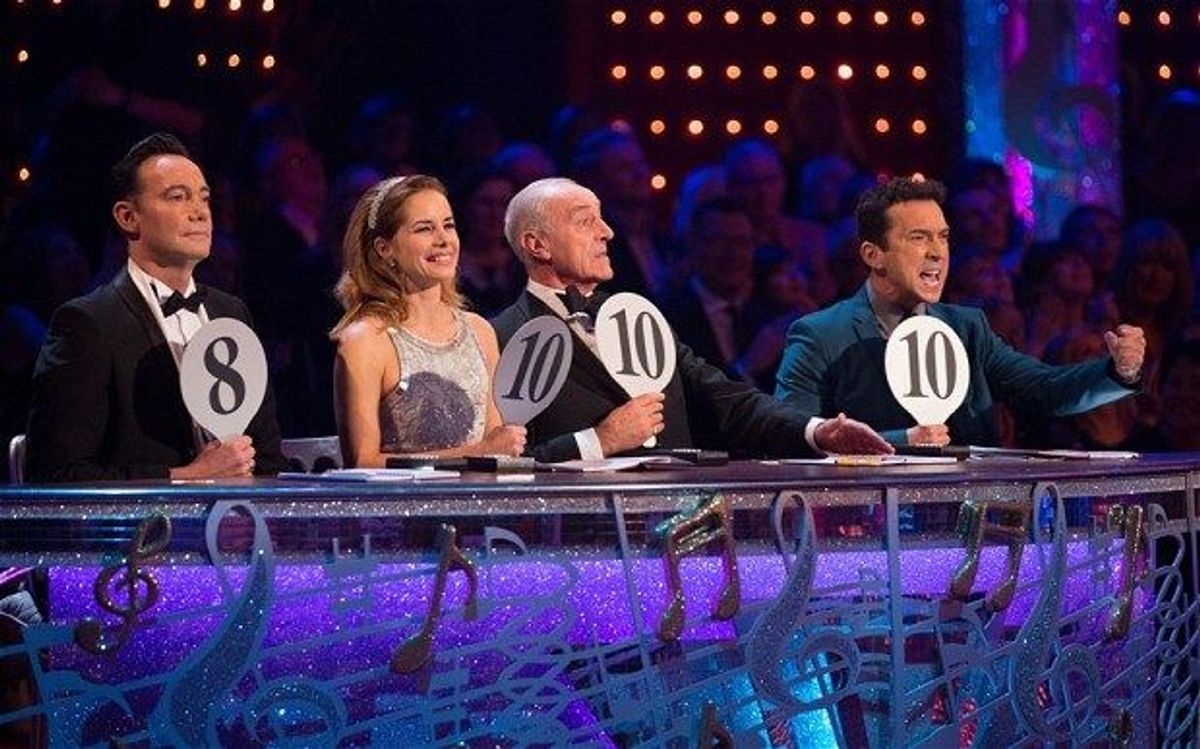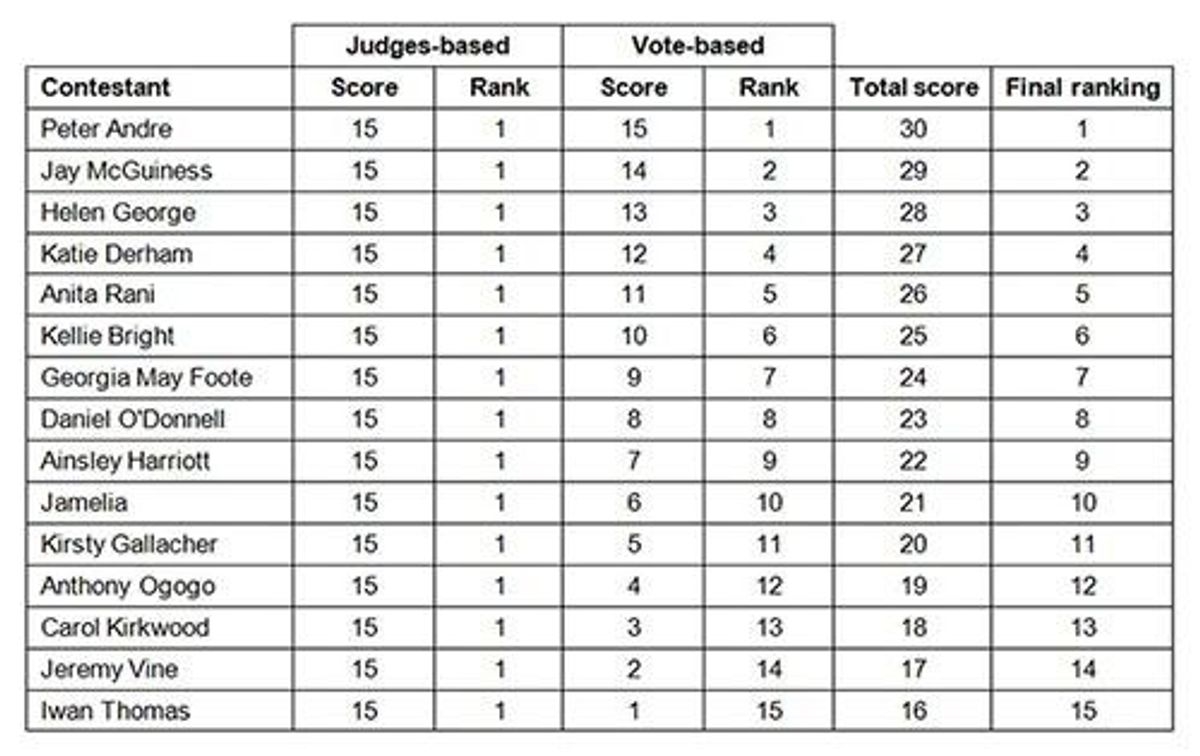
Craig Revel Horwood is crucial to fairness on Strictly Come Dancing
Photo: BBC
It's definitely autumn: the leaves are turning, the mornings are darker and the Pumpkin Spice Latte has returned to Starbucks. For me, this can only mean one thing: a new series of Strictly Come Dancing!
This might seem like an odd topic for a research blog post, but all competitions have some form of assessment at their heart.
As much as I love the glitter, the dancing and the dodgy puns, I'm also fascinated by the parallels between Strictly and the work we do in AQA’s research unit.
One such parallel comes from the scoring system.
What is the Strictly Come Dancing scoring system?
For those not in the know, this is how it works.
Each of the four judges gives every dance a mark out of 10, leading to a total score out of 40.
Once all the contestants have danced, the public can vote for their favourite.
The highest ranked contestant in the public vote is given a score equal to the number of couples competing and so on in descending order.
Each contestant is then assigned two scores - one based on the judge's scores, one based on their popularity in the public vote.
These are added together to form an overall score the two contestants with the lowest combined score are entered into the dance-off.
So, whether or not a contestant goes into the dance-off is half determined by their scores from the judges, and half by the public vote.
How does Strictly Come Dancing's scoring system relate to assessment?
In the same way, a GCSE or A-level candidate's final grade is usually based on two or more assessments, each of which contributes a certain percentage of the overall marks.
We could, therefore, think of each week of Strictly as a dance exam comprising two components, each contributing 50% to the final outcome.
This contribution is known as an intended weighting.
Why is discrimination in Strictly Come Dancing scoring vital?
But, whether an intended weighting is achieved or not depends on the extent to which each component discriminates between the contestants.
Let's illustrate this with an extreme example.
Imagine that every contestant on Strictly Come Dancing was given the same score by the judges.
In this scenario, all contestants have the same place in the judges' rank order. The judges have not discriminated at all between the contestants.
As can be seen in the table below, when you combine these rankings with the rank from the public vote, each contestant's place in the final rank order is determined entirely by the public vote. (The voting data is not published, so the public vote rank order here is entirely fictional.)

What happens if there is no discrimination in scoring contestants?
By failing to discriminate between the contestants, the judges' scores don't contribute at all to the final outcomes and therefore have an actual weighting of 0%.
By the same token, if every couple had the same number of public votes, their place in the final rank order would be entirely influenced by the judges' scores.
Obviously, such an extreme scenario is unlikely to occur, but it neatly demonstrates how the variation in each set of rank orders can affect how much they contribute to the overall outcome.
It's for this reason (among others) that good discrimination is one of the features we look for in our assessments, and we routinely monitor the achieved weightings of our examinations.
Why Craig Revel Horwood should win the assessors' vote
It's also for this reason that Craig Revel Horwood is my favourite Strictly Come Dancing judge.
Known for being Strictly's Mr Nasty, Craig has a reputation for being the harshest judge, regularly dishing out twos and threes where the others give fours and fives.
But while Len Goodman, Dame Darcey Bussell and Bruno Tonioli might be nicer, by rarely giving marks below four they aren't distinguishing between dancers as clearly.
Craig's willingness to give out lower scores increases the range of total scores, discriminating better between contestants.
This in turn helps to ensure that the judges' scores make a contribution to the overall outcomes.
So, if you've ever complained that Strictly is nothing more than a popularity contest, don't blame Craig.
This blog was originally published in October 2015 before the death of Len Goodman in April 2023
Read more by this author:
Strictly Come Scoring (PtII)
Compare & Contrast: What does % really mean?
Does transparency equal trust?
Read more on this topic:
Comparable Outcomes: Setting the standard
Attainment Gender Gap: The role of O Levels, GCSEs and TAGs
Grade boundaries: Getting back to normal









